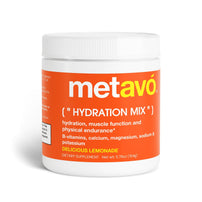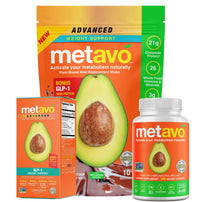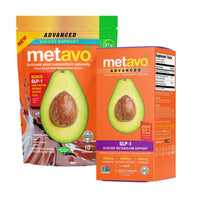Metabolic flexibility is the body's ability to efficiently switch between using carbohydrates and fats for energy. It's a key factor in maintaining a healthy metabolism, stable energy levels, and balanced blood sugar.
That’s why we’ve put together the Metabolic Flexibility Toolbox, a collection of short nutrition, exercise, and lifestyle tips to help you enhance your body's metabolic flexibility.
If you need a longer explanation of what metabolic flexibility is, check out our review of what is metabolic flexibility and why it matters. Then use this Toolbox as a checklist – checking off each item as you accomplish more.
Nutrition Tips
1.1 Prioritize Whole Foods
- Focus on whole, unprocessed foods rich in nutrients and fiber.
- Minimize consumption of highly processed and sugary foods.
1.2 Balance Macronutrients
- Strive for a balanced intake of carbohydrates, fats, and proteins.
- Avoid extreme diets that severely restrict any one macronutrient.
1.3 Embrace Healthy Fats
- Incorporate sources of healthy fats like avocados, nuts, seeds, and olive oil.
- These fats support metabolic flexibility and overall health.
1.4 Avoid Excessive Carbohydrates
- Limit the intake of refined carbohydrates and sugars.
- Choose complex carbohydrates for sustained energy.
1.5 Consider Intermittent Fasting
- Explore intermittent fasting or time-restricted eating patterns.
- These approaches can improve insulin sensitivity and fat utilization.
Exercise Tips
2.1 Prioritize Regular Exercise
- Aim for at least 150 minutes of moderate-intensity exercise per week.
- Include a mix of cardiovascular, strength training, and flexibility exercises.
2.2 Include Interval Training
- Incorporate High-Intensity Interval Training (HIIT) into your routine.
- HIIT workouts challenge your body's energy utilization and improve metabolic adaptability.
2.3 Embrace Resistance Training
- Include strength training exercises to build lean muscle mass.
- Muscle tissue burns more calories at rest, enhancing your metabolism.
Lifestyle Tips
3.1 Get Adequate Sleep
- Aim for 7-9 hours of quality sleep each night.
- Quality sleep supports hormonal balance and metabolic health.
3.2 Manage Stress
- Engage in stress-reduction techniques such as mindfulness, meditation, or yoga.
- Chronic stress can negatively impact metabolic flexibility.
3.3 Stay Hydrated
- Drink plenty of water throughout the day to support metabolic processes.
- Dehydration can hinder metabolic efficiency.
3.4 Prioritize Mindful Eating
- Eat mindfully, savoring each bite and paying attention to hunger cues.
- Avoid emotional or distracted eating.
Enhancing metabolic flexibility is a valuable step towards achieving a healthier metabolism, stable energy levels, and balanced blood sugar. The Metabolic Flexibility Toolbox, comprising nutrition, exercise, and lifestyle tips, empowers you to take control of your metabolic health.
Remember that individual needs may vary, and it's essential to consult with healthcare professionals or registered dietitians before making significant changes to your diet or exercise routine, especially if you have underlying health conditions. Start building a more flexible and vibrant metabolism today!
























Leave a comment
This site is protected by hCaptcha and the hCaptcha Privacy Policy and Terms of Service apply.